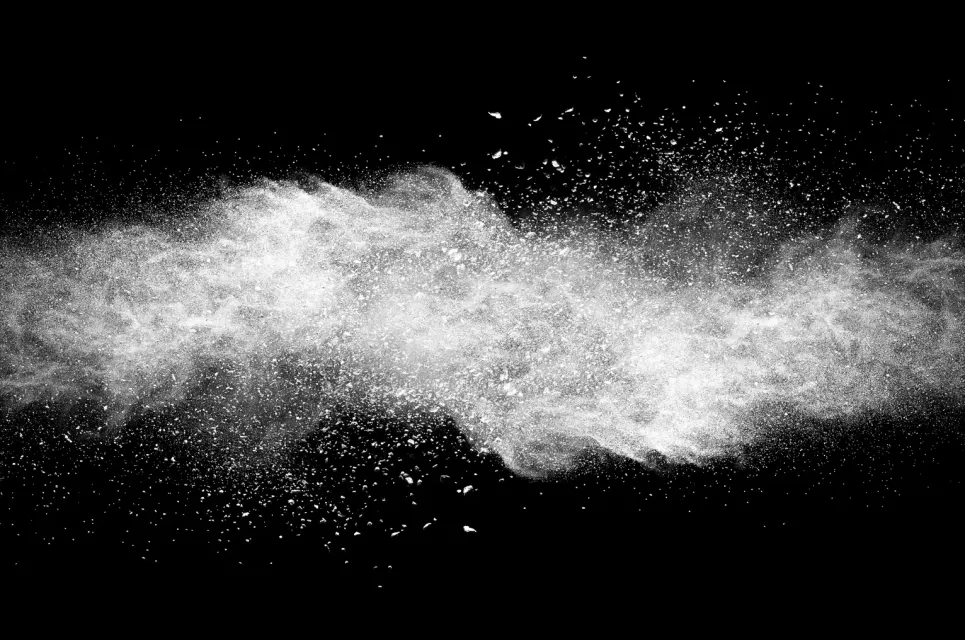Creatine and creatinine are two distinct molecules: creatine is an energy compound mobilized during high-intensity efforts, while creatinine is the metabolic waste product of its degradation.
This distinction is important when assessing the quality of your dietary supplement, as the presence of creatinine in a creatine supplement is an indicator of product degradation.
What's the difference?
Creatine: Essential energy molecule for physical activity
Creatinine: Metabolic waste product of creatine degradation
How does creatine work in the body?
Origin of creatine
Creatine is a natural compound that our body synthesizes daily from three amino acids: glycine, arginine and methionine. Creatine is mainly produced by the liver, kidneys and pancreas, to the tune of around 1 gram a day.
Our body also obtains creatine through the diet, thanks to creatine-rich foods such as red meat and fish. It is estimated that a balanced diet provides around 1 extra gram of creatine per day.
Vegetarians and vegans naturally have lower creatine levels! Creatine is a vegan supplement because it is synthesized in the laboratory without any animal sources.
Creatine's role
Creatine plays a fundamental role in our cells' energy metabolism. It is stored in our muscles in the form of phosphocreatine, acting as a rapidly mobilizable energy reserve. During high-intensity, short-duration efforts, phosphocreatine enables rapid regeneration of ATP (Adenosine Triphosphate), the main cellular energy source for physical effort.
This natural production and dietary intake are generally not enough to saturate our creatine stores. That's why many athletes supplement their intake.

Creatine supplementation has many effects:
- Increased muscular strength for short efforts
- Increased weight training volume
- Optimizing muscle recovery
- Long-term support for muscle development
Although continuous intake of creatine is considered safe according to scientific studies, we recommend that you take creatine in cycles in order to maximize the body's sensitivity to creatine and better assess the effects on performance!
Creatine degradation
Creatine follows a complex metabolic cycle in our bodies. Once stored in the muscles as phosphocreatine, it is gradually broken down into creatinine. Creatinine is then eliminated by the kidneys and excreted in the urine.
To maintain stable creatine levels, our body must constantly produce or obtain creatine from the diet to compensate for this daily loss.
What is the function of creatinine?
Origin and role of creatinine
Creatinine is a biologically inactive metabolic waste product of the natural breakdown of creatine. It therefore has no biological "function".
On average, between 1.7% and 2.5% of total creatine is converted to creatinine in the muscle itself, and then excreted in the urine after passing through the plasma. Creatinine levels vary from one individual to another, as they are proportional to muscle mass and dietary creatine intake.
Men and women will therefore have different rates, as will people on vegetarian or vegan diets.1
The greater your muscle mass and the more physically active you are, the higher your creatinine production will be. That's why athletes often have naturally higher levels.
Once produced, creatinine is filtered by the kidneys and eliminated in the urine. This elimination occurs at a relatively constant rate, making it an excellent marker of renal function.
Why measure creatinine levels?
The measurement of creatinine, eliminated daily by the kidneys, is used to assess their filtration capacity. It is measured in two ways :
- Creatininemia: blood creatinine measurement
- Creatininuria: urinary creatinine measurement
These measurements are used to calculate or estimate creatinine clearance and glomerular filtration rate (GFR), two essential indicators of renal function.
Creatinine clearance measures the kidneys' ability to eliminate creatinine from the blood, and is expressed in milliliters per minute (mL/min).
Glomerular filtration rate (GFR ) is the reference indicator: it measures the volume of blood filtered by the kidneys in one minute. Its calculation takes into account not only creatinine levels, but also the patient's age, sex and ethnic origin.
Normal creatinine levels vary according to gender: between 45 and 84 µmol/L for women and between 70 and 110 µmol/L for men (according to medamom - article in collaboration with Dr Alain Toledano, President of Institut Rafaël and Radiation Oncologist at Hartmann Radiotherapy Center).
However, it's important to understand that these values are only benchmarks and are not sufficient to highlight renal failure. In athletes, higher levels may be detected due to high muscle mass, intense physical activity or a creatine-rich diet. An excessively high creatinine concentration may also be the result of severe dehydration.
To remember:
- Medical studies show that creatine supplementation does not cause kidney damage in healthy individuals.
- A temporary increase in blood creatinine levels during supplementation does not necessarily indicate a risk to the kidneys.
- It is advisable to consume creatine while maintaining good hydration and consulting a doctor if you have a kidney history.
How to choose a quality creatine?
The purity of your creatine has an impact on its efficacy and on your health, so pay close attention to the manufacturing and packaging conditions of your product.
Why is purity important?
Degradation of creatine monohydrate during manufacture or storage produces creatinine. Analyses carried out on several commercial creatines on the market have revealed a rate of over 1%, indicating poor quality production.
Poor-quality creatine can contain high levels of creatinine, which not only reduces its effectiveness, but can also distort blood test results when monitoring your kidney health.
What is the Creapure® label?
The Creapure® label is currently the quality reference if you want to start a creatine monohydrate cure. It is issued by the German company AlzChem Trostberg GmbH, which produces creatine to the same quality control standards as the pharmaceutical industry.
This label guarantees :
- Regular internal and external quality controls
- Purity tests on every batch
- Absence of creatinine (degradation product)
- No hazardous contaminants
- No traces of steroids or doping substances (Cologne List® certification)
The packaging phase can have an impact on the final quality of your creatine. At Protéalpes, we guarantee traceability throughout the entire production chain: from the synthesis of Creapure® creatine in Germany to final packaging in our Albertville facility!
Conclusion
Creatine is an essential energy compound, enabling the regeneration of adenosine triphosphate during short, intense efforts. Creatine supplementation helps maximize sporting performance. It also promotes muscle development, enabling you to increase the intensity of your exercise.
Creatinine, on the other hand, is the waste product of creatine breakdown in your body. Eliminated by the kidneys, creatinine levels can be monitored to assess renal function. For athletes, creatine supplementation can temporarily influence creatinine levels.
Creatinine is also a good indicator of the quality of your dietary supplement. A high level of creatinine indicates product deterioration during production or storage.
Here are some additional resources
Wondering about the best way to consume your creatine? Our article on taking creatine with hot water explains how this method affects creatinine levels.
Simultaneous consumption of coffee and creatine is common among athletes. Find out how caffeine and creatine interact and whether this can influence creatinine conversion.
If you suffer from tendon pain, our article on the impact of creatine on tendons will enlighten you on the links between supplementation and tendon health.
A frequent question concerns night-time intake: does creatine prevent sleep?
This article also discusses variations in creatinine levels during sleep.
For those who use pre-workout supplements, our analysis of the difference between creatine and pre-workout will help you understand their respective effects.
Finally, if you're interested in the different forms of creatine, our article on creatine kre-alkalyn explains how this variant can influence creatinine levels differently from classic creatine monohydrate.















